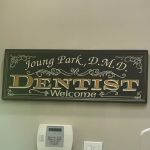Effective Gum Disease Management: A Comprehensive Guide
- Understanding Gum Disease
- Signs and Symptoms of Gum Disease
- Preventing Gum Disease
- Gum Disease Treatment Options
- Aftercare and Maintenance
Understanding Gum Disease
Gum disease, also known as periodontal disease, is a common yet often overlooked condition that affects many people worldwide. It starts with inflammation of the gums due to plaque buildup and can lead to more serious complications if left untreated. Gum disease occurs in stages, beginning with gingivitis, which can progress to periodontitis, a more severe form of the disease that can cause tooth loss. Early detection and proper gum disease management can prevent its progression and ensure a healthier smile.
Signs and Symptoms of Gum Disease
Recognizing the signs and symptoms of gum disease early is crucial for effective gum disease management. Common symptoms include swollen, red, or bleeding gums, especially when brushing or flossing. Persistent bad breath, gum recession, and loose teeth can also indicate the presence of gum disease. If you notice any of these signs, it’s important to consult a dentist or dental professional for an evaluation and proper diagnosis.
Preventing Gum Disease
Preventing gum disease is always better than treating it. Good oral hygiene practices play a significant role in gum disease management. Brushing your teeth at least twice a day with fluoride toothpaste, flossing regularly, and using an antimicrobial mouthwash can help remove plaque and prevent the buildup of harmful bacteria. Additionally, regular dental check-ups and professional cleanings are essential for maintaining healthy gums and teeth. Avoiding smoking and limiting sugary foods and drinks can further reduce the risk of developing gum disease.
Gum Disease Treatment Options
If gum disease has already developed, there are several treatment options available to manage the condition. For early-stage gum disease (gingivitis), a professional cleaning and improved home care can be sufficient to restore gum health. For more advanced cases, treatments such as scaling and root planing, which involve deep cleaning of the gums and roots, may be necessary. In severe cases, surgical procedures like gum grafts or flap surgery may be required to repair damage caused by gum disease. It's essential to work closely with your dentist to determine the most appropriate treatment for your specific situation.
Aftercare and Maintenance
After undergoing treatment for gum disease, maintaining proper oral care is crucial for preventing recurrence. Follow your dentist's advice for aftercare, which may include using special mouth rinses, avoiding certain foods, and attending follow-up appointments. Regular dental cleanings and exams are essential for long-term gum disease management. By committing to a routine of good oral hygiene and regular check-ups, you can keep your gums healthy and prevent further complications.
If you're looking for professional advice or need assistance with gum disease management, visit Dentistry Toothtruth for more information.







 ABC Dental4.0 (433 review)
ABC Dental4.0 (433 review) David G. Jones, DDS - TMJ Treatment Atlanta3.0 (2 review)
David G. Jones, DDS - TMJ Treatment Atlanta3.0 (2 review) FME Family Dental: David Y. Kim, DDS4.0 (19 review)
FME Family Dental: David Y. Kim, DDS4.0 (19 review) Perry Street Dental5.0 (200 review)
Perry Street Dental5.0 (200 review) Park Family and Cosmetic Dentistry5.0 (51 review)
Park Family and Cosmetic Dentistry5.0 (51 review) Sherman Oaks Dental5.0 (64 review)
Sherman Oaks Dental5.0 (64 review) The Importance of Oral Health Education During Pregnancy for a Healthy Pregnancy
The Importance of Oral Health Education During Pregnancy for a Healthy Pregnancy Best Tips for Brushing Your Teeth Properly for Healthy Gums: Essential Techniques for Oral Health
Best Tips for Brushing Your Teeth Properly for Healthy Gums: Essential Techniques for Oral Health Why Skipping Dental Checkups Can Lead to Bigger Oral Health Problems
Why Skipping Dental Checkups Can Lead to Bigger Oral Health Problems Advantages of Porcelain Dental Restorations
Advantages of Porcelain Dental Restorations How Can Diabetes Cause Tooth and Gum Problems? Preventing and Managing Oral Health Issues
How Can Diabetes Cause Tooth and Gum Problems? Preventing and Managing Oral Health Issues Healthy Habits for Promoting Good Oral Health and Hygiene: Tips for a Healthy Smile
Healthy Habits for Promoting Good Oral Health and Hygiene: Tips for a Healthy Smile